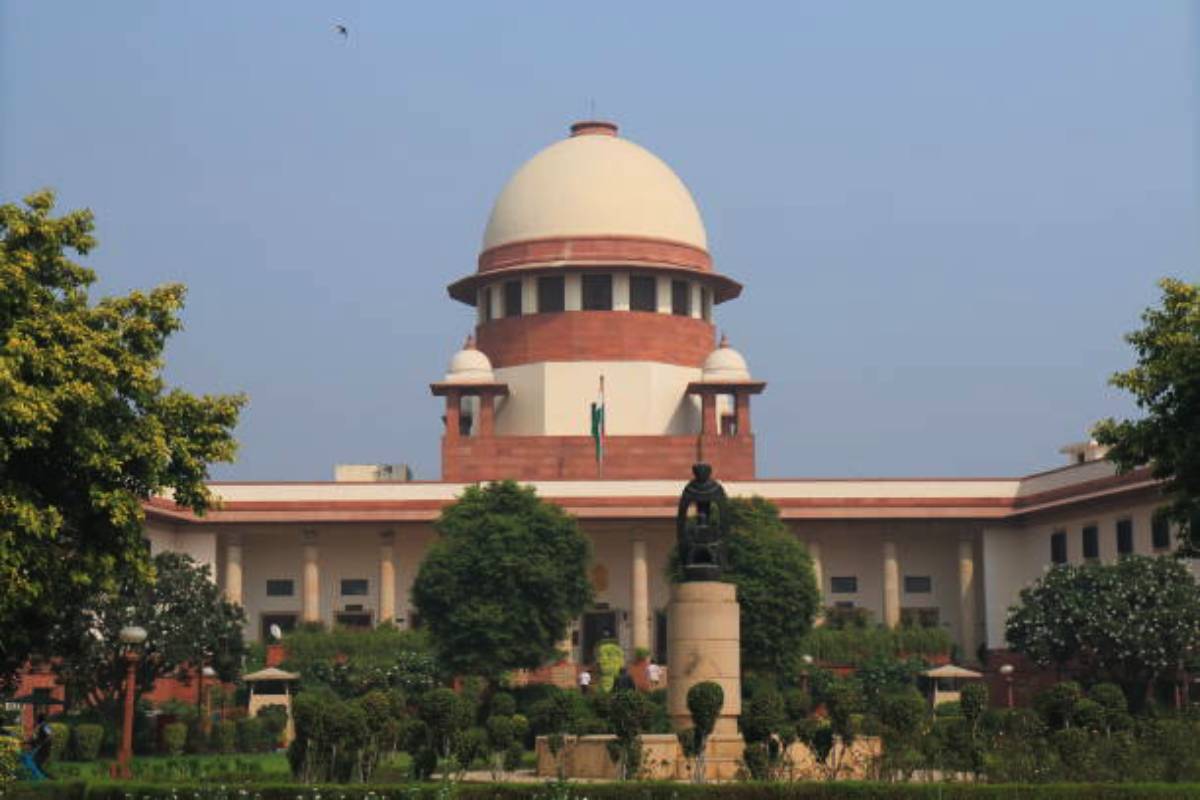India’s Got Latent: SC issues notice on YouTuber Ashish Chanchlani’s plea against FIRs
SC issues notice on YouTuber Ashish Chanchlani’s plea to quash or transfer FIR in India’s Got Latent case; tagged with Ranveer Allahabadia’s petition.
The apex court pointed out that the movie is running in other parts of the country having the same demographic profile as West Bengal.

File Photo: Supreme Court of India
The Supreme Court on Friday questioned the West Bengal government over banning the controversial film The Kerala Story saying the movie is running in other parts of the country having the same demographic profile as West Bengal.
Issuing notice to West Bengal government on a plea by the producers of the film challenging ban on its screening, Chief Justice D Y Chandrachud, heading a bench also comprising Justice Pamidighantam Sri Narasimha, asked, “The movie is being released all over the country, why should West Bengal ban the movie? West Bengal is not different from other parts of the Country. If it can run in other parts of the country, why should the State of West Bengal ban the film? It is running in other parts of the country which have a similar demographic profile as West Bengal.”
Advertisement
Asking the West Bengal government to leave the worth of the film to the people, Chief Justice Chandrachud said, “If the public does not think that the film is not worth seeing, they will not see it. This has nothing to do with the cinematic value of the movie, it may be good or bad. Why should you not allow a film to run?”
Advertisement
Besides the West Bengal government, the top court also issued notice to Tamil Nadu government on its “de facto” ban on the film in the State. Seeking reply from West Bengal and Tamil Nadu governments, the bench posted the matter for hearing on May 17.
The producers of the film have said that there was a shadow ban on the film in Tamil Nadu as the State government by issuing an “alert” anticipating protests following the release of the film has resulted in the withdrawal of the film by the theatres.
The bench asked the Tamil Nadu government what it is doing as this is a public order situation. “We would like to know from you, what are the specific administrative arrangements to ensure the safety. The state government cannot say that we will look the other way while theatres are being attacked, chairs being burnt,” the bench said.
Responding to the bench asking why West Bengal government has banned the screening of the film when it is running in other parts of the country, senior advocate Abhishek Manu Singhvi told the bench that the State government has banned the screening of the film as there are intelligence reports apprehending law and order problems.
Singhvi, appearing for the West Bengal government, said that in all other matters relating to the same film, the court had asked the parties to approach the High Courts, similarly the producer of the film too should be asked to move High Court.
Senior advocate Harish Salve, appearing for producer of the film, said that on the day of the release of the film, the West Bengal Chief Minister made a statement that the film is against a community and the exhibition can cause law and order problems. He said that the film was banned after it ran for three days without any problem.
On Tuesday (May 9) the top court had agreed to hear on May 15 an appeal against the interim order of the Kerala High Court refusing to block the release of the film.
Declining to stall the release of the film, the High Court had observed that there was no allegation against a religion, but only against the organisation Islamic State or ISIS. The High Court had also said that there was nothing offensive to any particular community.
On an earlier occasion on a plea by Jamiat Ulama-I-Hind, the Supreme Court had declined to interfere with the release of the controversial film and had asked the High Court to decide the pleas in the first instance.
The top court had then said, “Think about the labour of actors, producers who put in a lot of work. A filmmaker invests a lot of money and time in making the film. Leave it to the market, the market will decide if it is not up to the mark.”
Jamiat Ulama-I-Hind had approached the Supreme Court seeking stay on the release of the film in theatres and on OTT platforms saying that the controversial film is likely to cause hatred and enmity between different sections of society.
The Jamiat Ulama-I-Hind had said that the film demeans the entire Muslim community and it will result in endangering the life and livelihood of the entire Muslim community.
Advertisement